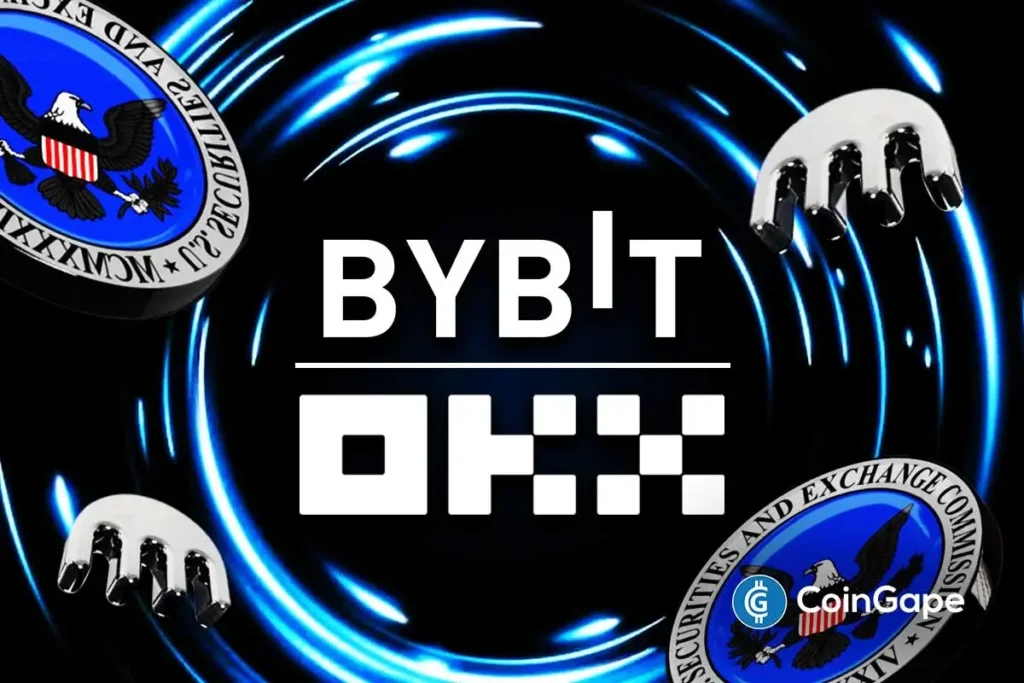Philippine SEC Issues Warning Against Unlicensed Crypto Exchanges: A Growing Concern
The Philippine Securities and Exchange Commission (SEC) has taken a decisive stance against a group of ten unlicensed cryptocurrency exchanges, including prominent names like OKX, Bybit, and Kraken. As the regulatory landscape for digital assets becomes increasingly stringent, this latest development underscores the SEC’s commitment to protecting investors and enforcing compliance with national regulations. These exchanges are accused of operating without the proper licenses, exposing Filipino investors to considerable risk.
Crackdown on Non-Compliant Exchanges
The SEC has launched a significant crackdown on digital asset exchanges that lack the necessary authorization to operate in the Philippines. The warning encompasses several major platforms such as MEXC, Bitget, Phemex, CoinEx, BitMart, and Poloniex, which are said to be non-compliant with the country’s crypto regulations. The SEC has emphasized that these platforms are soliciting investments from the public without the requisite registration or license, marking their activities as unauthorized and potentially damaging to investors in the country.
A key point in the SEC’s warning is the mention of Memorandum Circulars No. 4 and No. 5, which lay out the new regulatory framework for crypto exchanges. Effective from the date of the announcement, these circulars stipulate that all exchanges must secure registration before offering services to Filipino users. Failure to do so not only violates local laws but also poses significant risks to consumers looking to invest in digital assets.
Potential for Expanded Scrutiny
The regulatory crackdown doesn’t end with the current list of unlicensed exchanges. The SEC has warned that other unregistered platforms are at risk of facing similar scrutiny. This broadening of focus illustrates the SEC’s commitment to enforcing compliance across the digital asset market. The commission is determined to implement legal and regulatory measures, even collaborating with major tech companies such as Google, Apple, and Meta to limit unauthorized marketing by these platforms.
In its communications, the SEC made it clear that its regulations apply to any individual or entity that offers, facilitates, or promotes access to crypto asset trading, underlining the broad scope of its regulatory authority. This proactive approach aims to safeguard Filipino investors and ensure that those entering the market are doing so through legitimate channels.
Historical Context of Crypto Regulation in the Philippines
The SEC’s recent actions are part of a broader trend in international crypto regulation. Notably, this isn’t the first time the SEC in the Philippines has targeted unlicensed platforms. Last year, the authority took action against the cryptocurrency exchange Binance, citing similar concerns over its unregistered operations. Following that, the SEC blocked local users from accessing Binance, ultimately shutting down its website and online trading platform in the Philippines with assistance from the National Telecommunications Commission (NTC).
This historical context not only reflects the Philippines’ commitment to improving its regulatory frameworks but also signals to other exchanges that there are serious ramifications for operating without proper licenses. The SEC aims to create a safer environment for investors, minimizing the risk of fraud and loss.
Global Trends in Crypto Regulation
The Philippine SEC’s warning aligns with a growing global trend towards stricter regulation of cryptocurrency exchanges. Other countries are also stepping up their regulations, with examples such as the Thai SEC suing OKX for operating without registration. Similarly, South Korean authorities have raised concerns about licensing issues among multiple digital asset exchanges.
Like the Philippines, these countries are taking steps to protect consumers and ensure compliance within the cryptocurrency sector. Such actions are indicative of a shifting global narrative where regulatory authorities are increasingly wary of the possible risks posed by unlicensed crypto platforms.
Enhancing Investor Confidence
By taking action against unauthorized exchanges, the Philippine SEC aims to bolster investor confidence in the cryptocurrency market. A well-regulated environment is essential for attracting investment and fostering the growth of the crypto ecosystem within the country. Illegal or non-compliant exchanges can undermine trust, leading to hesitancy among potential investors.
As the digital asset space evolves, effective regulatory frameworks become critical for safeguarding investor interests and ensuring that all market participants adhere to established norms. The ongoing efforts of the Philippine SEC may serve to establish a more reliable and trustworthy market for Filipino investors, paving the way for future growth in the sector.
Conclusion: A Call for Compliance
The Philippine SEC’s warning serves as a crucial reminder of the importance of compliance in the rapidly evolving world of cryptocurrency. As the market continues to attract interest from investors, regulatory authorities must ensure that appropriate measures are in place to protect consumers. The recent actions against unlicensed exchanges mark a significant step in this direction, reflecting a broader commitment to creating a safe and regulated environment for cryptocurrency transactions. Investors are urged to conduct thorough research and engage with authorized platforms only, as the crypto landscape continues to develop amid regulatory changes.


